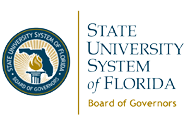|
Climate change is already impacting natural systems in Florida; sea level has risen and is projected to continue to rise through this century. The State University System, state agencies, private industries, and local organizations are mobilizing to develop adaptation and mitigation strategies. This one year activity seeks to develop information on university climate change research and teaching activities state wide and further target university activities to focus on the needs of the state agencies and other institutions as they begin to deal with the many challenges climate change imposes on this vulnerable state. With limited resources and time this initial work focuses on four major themes each reviewed as a white paper: Biodiversity and Land UseFlorida is a state with unique biological resources and significant natural heritage. Climate change is expected to impact biodiversity through changes in temperature, water availability and sea level rise. The white paper will summarize major drivers of biodiversity and land cover change and describe current knowledge of biodiversity response to climate change. In addition, we will highlight ongoing research programs, significant knowledge gaps, future actions and needs. Climate Scenarios for FloridaFlorida has a maritime type climate with large variations that are closely associated with global climate variations like ENSO and AMO. This paper will discuss the established teleconnections and how a changing climate affects these variations and the potential role of other anthropogenic influences like land cover & land use changes and aerosols. Uncertainty of climate variability in a future climate complemented with projected demographic changes in Florida can cast some unanticipated scenarios which will also be discussed, as well as ways to move forward to bridge our existing knowledge gaps in climate variations and change. Education, Training, and Outreach on Climate ChangeThe Florida SUS has a base of climate-related courses and curricula that each university and/or center is offering. We aim to identify these opportunities, assess the ability of customers and students to access these programs, determine the unmet needs of the various stakeholder groups, and propose options for advancing cooperative climate change education programs in the state of Florida. Water Management and Coastal County AdaptationOriginally envisioned as two papers the overlap was such that one paper seemed more appropriate. Coastal counties have both the general impact of climate change, warmer temperatures, different patterns of precipitation, etc. but they also have the special problem of sea level rise, already a factor in some low lying areas such as Miami-Dade County. Sea level rise and precipitation changes, together with low lying coastal topography continue to present complex future water management challenges. Higher ground water levels, salinization without flooding and compromised canal systems create challenges and problems for water managers and for coastal urban systems. The paper reviews the current state of the art on these topics, identifies significant knowledge gaps, and outlines research and action priorities for coastal countries, water managers, utilities, and other agencies. |
|||
|
© SUS Climate Change Task Force Disclaimer: The products presented on this and
related SUS Climate Change Task Force web pages are only |

